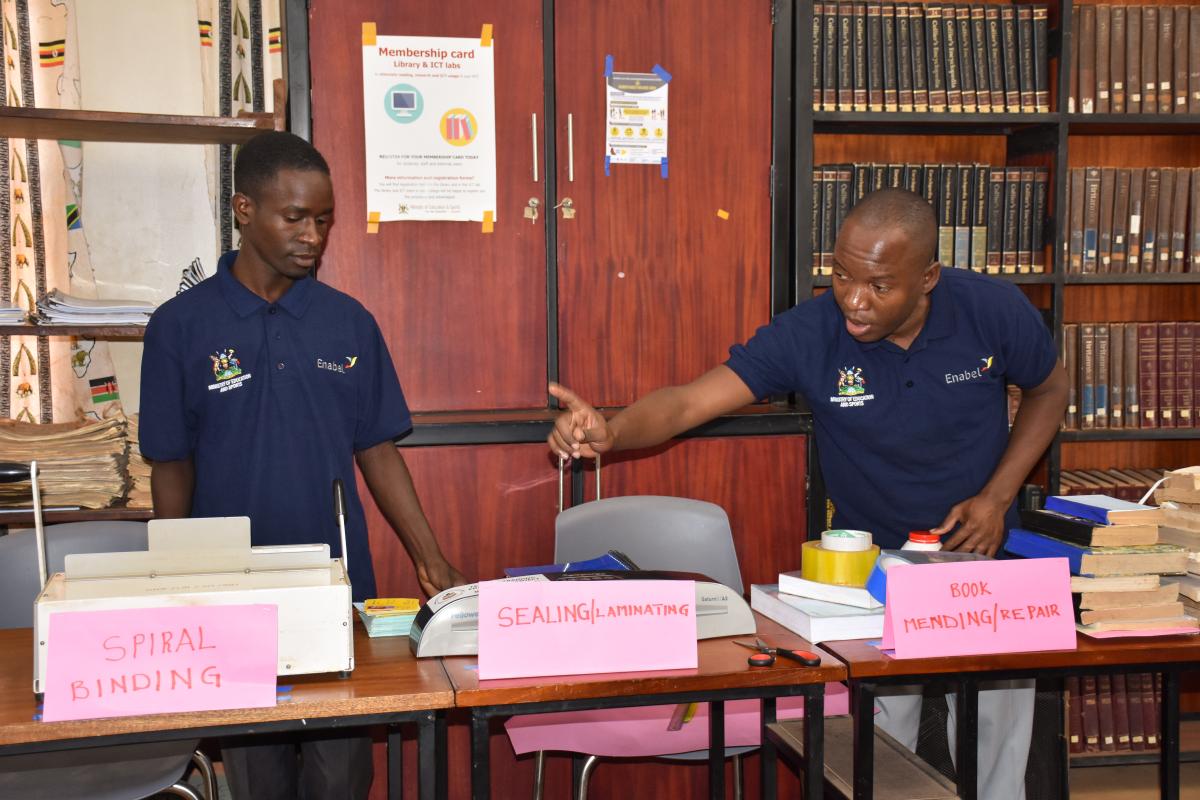Results-based management takes college administration to the next level in Uganda
In 2017, Enabel and the Ministry of
Education and Sports introduced a strategy known as Results-based Management
(RBM) to improve the management of the National Teachers Colleges (NTCs). RBM
is a process that involves monitoring and assessing planned actions as well as
collaborative execution and transparent accountability. This strategy was made
available to help college management teams, make informed decisions and enhance
their service delivery.
In the National Teacher’s Colleges,
the RBM process involves the participation of various committees in the
planning, execution of budgeted activities, and the collection and reporting of
data. The data gathered from the implemented activities is analysed and shared
with committee heads who then report it to the Ministry of Education and Sports
and other stakeholders during review sessions. Then, on a quarterly basis,
stakeholders assess the information which has been presented and
share suggestions to improve college management.
Prior to the introduction of RBM in the
NTCs, the majority of activities in the colleges were centralized with only the
Principal and a small team of administrators responsible for managing the
colleges. All college activities were planned and budgeted by college managers
before they were passed on to the rest of the staff. According to Lenny Kebirungi, the Deputy
Principal at NTC Mubende, in charge of overseeing all RBM operations at the
college, despite having planned activities, staff members, including herself,
submitted personal requisitions for unforeseen activities and accounted for
them whenever it suited them.
When RBM was introduced, management improved
considerably. The duty that was previously designated for top managers became
the responsibility of all college staff. A number of committees were selected and
trained to streamline and coordinate college activities in a participative
manner. The committees were also allocated roles, data collection tools,
and templates for uniform reporting.
Today, the RBM strategy is credited
for promoting accountability and transparency and enabling all college
employees to participate in overseeing and tracking actions
to achieve set goals. Daisy Aliwaru the Principal at NTC Muni praises RBM
for re-orienting the college staff's mind-set toward management. According to Daisy,
college operations have improved because staff feel valued for their input
during the decision-making process. Additionally,
staff are answerable to their committees for the resources they utilize during
the implementation of college activities.
For sustainability, the institutions
intend to alternate the quarterly review sessions to share best management
practices for continued improvement. Lenny Kebirungi believes that the
quarterly review sessions will be the most effective way to continue sharing
the skills and knowledge that they have acquired over the years through the
support of Enabel and the Ministry of Education. The principal of NTC Kaliro,
Evelyn Lanyero, commits to continue orienting new employees about the RBM process
and ensure that they have the necessary tools to carry out RBM activities at
the institution. Abdul Kibedi, a National Pedagogy Expert recommends that all
new employees should be sensitized, oriented, and trained to continue the
Results-based Management approach in the colleges as they transition from
teacher training institutions to degree-awarding institutions.
In 2019, the digital approach to RBM was introduced
due to the challenges imposed by the COVID-19 outbreak to enable college teams
to remotely develop work plans, budgets, monitor, and report on the
progress of executed activities. Enabel has equipped the colleges with the
necessary skills and resources required to further strengthen and sustain RBM at
the institutions.
For more about RBM https://youtu.be/_ZjWEK69Ri4
Dernières actualité de ce projet
Pas d'actualité

